Английский язык для специальных и академических целей: Международные отношения и зарубежное регионоведение. Часть 1 - [23]
Another problem with arguments from analogy is that you get totally different analogies from different points of view.
Three engineering students are discussing what sort of God must have designed the human body. The first says, “God must be a mechanical engineer. Look at all the joints.”
The second says. “I think God must be an electrical engineer. The nervous system has thousands of electrical connections.”
The third says, “Actually, God is a civil engineer. Who else would run a toxic waste pipeline through a recreational area?”
***
The “Post Ergo Propter Hoc” Fallacy /“After this, therefore because of this”/
The phrase describes the error of assuming that because one thing follows another, that thing was caused by the other. For obvious reasons, this false logic is popular in sociopolitical discourse, such as “Most people hooked on heroin started with marijuana.” True, but even more started with milk. Post hoc makes life more entertaining in some cultures: “the sun rises when the rooster crows, so the rooster's crowing makes the sun rise.” Thanks, rooster! Or take our colleague:
Every morning she steps out onto her front stoop and exclaims, “Let this house be safe from tigers!” then she goes inside.
Finally we said to her, “What's that all about? There isn't a tiger within a thousand miles from here.”
And she said, “You see? It works!”
In general we are deceived by this fallacy because we fail to see there's another cause at work.
***
Circular argument is an argument in which the evidence for a proposition contains the proposition itself. [ ]
It was autumn, and the Indians on the reservation asked their new chief if it was going to be a cold winter. Raised in the ways of the modern world, the chief had never been taught the old secrets and had no way of knowing whether the winter would be cold or mild. To be on the safe side, he advised the tribe to collect wood and be prepared for a cold winter. A few days later, as a practical afterthought, he called the national Weather Service and asked whether they were forecasting a cold winter. The meteorologist replied that, indeed, he thought the winter would be quite cold. The chief advised the tribe to stock even more wood.
A couple of weeks later the chief checked in again with the Weather Service. “Does it still look like a cold winter?” asked the chief.
Unit I. UK: from Empire to Democracy
Unit I. UK: from Empire to Democracy
“It sure does,” replied the meteorologist. “It looks like a very cold winter.” The chief advised the tribe to gather every scrap of wood they could find.
A couple of weeks later, the chief called the Weather Service again and asked how the winter was looking at that point. The meteorologists said, “We're now forecasting that it will be one of the coldest winters on record!” “Really!” said the chief. “How can you be so sure?”
The meteorologist replied, “The Indians are collecting wood like crazy!”
The chief's evidence for the need to stock more wood turns out to be that he was stocking more wood. Fortunately, he was using a circular saw.
***
The argument from respect for authority is one of our boss's favorite arguments. Citing authority to support your argument is no logical fallacy in and of itself; expert opinion is legitimate evidence alongside other evidence. What is fallacy is using respect for authority as the sole confirmation of your position, despite convincing evidence to the contrary.
Ted meets his friend Al and exclaims, “Al! I heard you died!”
“Hardly,” says Al, laughing, “As you can see I am very much alive.”
“Impossible,” says Ted. “The man who told me is much more reliable than you.”
What is always at play with arguments from authority is whom one accepts as a legitimate authority.
A man walks into a pet shop and asks to see the parrots.
The shop owner shows him the two beautiful ones out on the floor. “This one is $5,000 and the other is $10,000,” he says.
“Wow!” says the man. “What does the $5,000 one do?”
“This parrot can sing every aria Mozart wrote,” says the store owner.
“And the other?”
... “He sings entire Wagner's Ring cycle. There is another one out back for $30,000.”
“Holy moley1! What does he do?”
“Nothing that I've heard. But the other two call him ‘Maestro'”
/from Plato and a Platypus>2 Walk into a Bar. Understanding philosophy through jokes' by Thomas Cathcart and Daniel Klein. Penguin Books. London. 2008/
Expression of surprise утконос
| Logical tools (1) | Logical fallacies (2) |
1. Monarchy is the best form of government for Great Britain because Great Britain has always been a monarchy.
2. Monarchy is one of the oldest forms of government, which has become obsolete in most European countries. However, the British monarchy has survived and continually kept its position. Hence, the British monarchy has a greater capacity for adjustment.
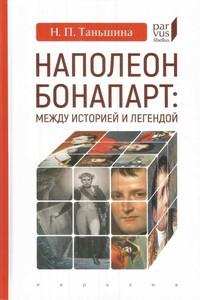
Наполеон притягивает и отталкивает, завораживает и вызывает неприятие, но никого не оставляет равнодушным. В 2019 году исполнилось 250 лет со дня рождения Наполеона Бонапарта, и его имя, уже при жизни превратившееся в легенду, стало не просто мифом, но национальным, точнее, интернациональным брендом, фирменным знаком. В свое время знаменитый писатель и поэт Виктор Гюго, отец которого был наполеоновским генералом, писал, что французы продолжают то показывать, то прятать Наполеона, не в силах прийти к окончательному мнению, и эти слова не потеряли своей актуальности и сегодня.
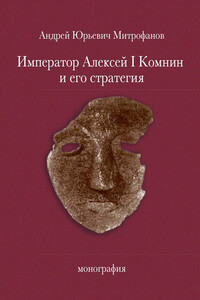
Монография доктора исторических наук Андрея Юрьевича Митрофанова рассматривает военно-политическую обстановку, сложившуюся вокруг византийской империи накануне захвата власти Алексеем Комнином в 1081 году, и исследует основные военные кампании этого императора, тактику и вооружение его армии. выводы относительно характера военно-политической стратегии Алексея Комнина автор делает, опираясь на известный памятник византийской исторической литературы – «Алексиаду» Анны Комниной, а также «Анналы» Иоанна Зонары, «Стратегикон» Катакалона Кекавмена, латинские и сельджукские исторические сочинения. В работе приводятся новые доказательства монгольского происхождения династии великих Сельджукидов и новые аргументы в пользу радикального изменения тактики варяжской гвардии в эпоху Алексея Комнина, рассматриваются процессы вестернизации византийской армии накануне Первого Крестового похода.
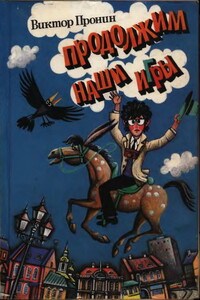
Виктор Пронин пишет о героях, которые решают острые нравственные проблемы. В конфликтных ситуациях им приходится делать выбор между добром и злом, отстаивать свои убеждения или изменять им — тогда человек неизбежно теряет многое.
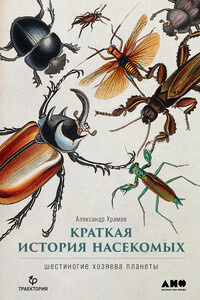
«Любая история, в том числе история развития жизни на Земле, – это замысловатое переплетение причин и следствий. Убери что-то одно, и все остальное изменится до неузнаваемости» – с этих слов и знаменитого примера с бабочкой из рассказа Рэя Брэдбери палеоэнтомолог Александр Храмов начинает свой удивительный рассказ о шестиногих хозяевах планеты. Мы отмахиваемся от мух и комаров, сражаемся с тараканами, обходим стороной муравейники, что уж говорить о вшах! Только не будь вшей, человек остался бы волосатым, как шимпанзе.
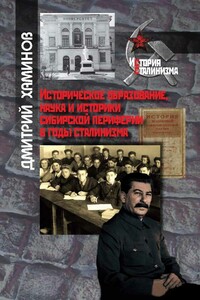
Настоящая монография посвящена изучению системы исторического образования и исторической науки в рамках сибирского научно-образовательного комплекса второй половины 1920-х – первой половины 1950-х гг. Период сталинизма в истории нашей страны характеризуется определенной дихотомией. С одной стороны, это время диктатуры коммунистической партии во всех сферах жизни советского общества, политических репрессий и идеологических кампаний. С другой стороны, именно в эти годы были заложены базовые институциональные основы развития исторического образования, исторической науки, принципов взаимоотношения исторического сообщества с государством, которые определили это развитие на десятилетия вперед, в том числе сохранившись во многих чертах и до сегодняшнего времени.
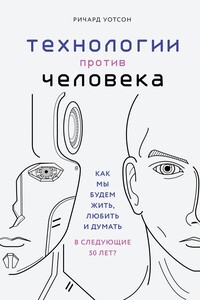
Эксперты пророчат, что следующие 50 лет будут определяться взаимоотношениями людей и технологий. Грядущие изобретения, несомненно, изменят нашу жизнь, вопрос состоит в том, до какой степени? Чего мы ждем от новых технологий и что хотим получить с их помощью? Как они изменят сферу медиа, экономику, здравоохранение, образование и нашу повседневную жизнь в целом? Ричард Уотсон призывает задуматься о современном обществе и представить, какой мир мы хотим создать в будущем. Он доступно и интересно исследует возможное влияние технологий на все сферы нашей жизни.